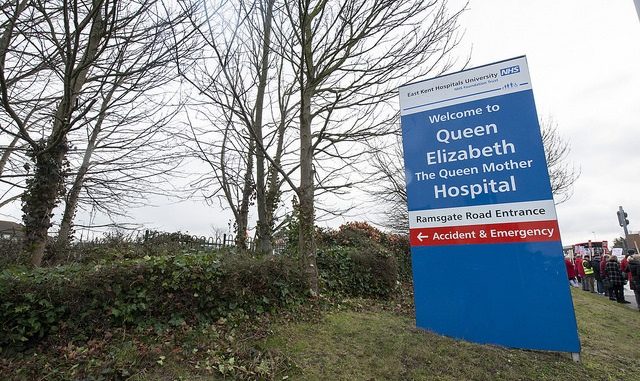
The QEQM Hospital in Margate and the William Harvey Hospital, Ashford are amongst 143 hospitals across the country that will test and roll out Martha’s Rule in its first year.
The NHS confirmed the first sites this morning (May 27) which will test implementation of Martha’s Rule as the next step in a major patient safety initiative, following the announcement in February of NHS England funding for this financial year.
The purpose of Martha’s Rule is to provide a consistent and understandable way for patients and families to seek an urgent review if their or their loved one’s condition deteriorates and they are concerned this is not being responded to.
Martha Mills
The scheme is named after Martha Mills, who died from sepsis aged 13 in 2021, having been treated at King’s College Hospital, London, due to a failure to escalate her to intensive care and after her family’s concerns about her deteriorating condition were not responded to.
NHS England is working with Martha’s parents to develop materials to advertise and explain the initiative in hospitals across the country, to ensure it is something that all patients, staff, and their families can recognise.
The initial target was to enrol at least 100 sites, but due to significant interest from frontline clinicians this has been expanded, meaning this first phase of the programme will be in place at 143 locations across the country by March 2025.
Evaluation of how the system works in these sites over the course of this year will inform proposals for Martha’s Rule to be expanded further across all acute hospitals, subject to future government funding.
Martha’s Rule
Martha’s Rule is to be made up of three components to ensure concerns about deterioration can be swiftly responded to.
Firstly, an escalation process will be available 24/7 at all the 143 sites, advertised throughout the hospitals on posters and leaflets, enabling patients and families to contact a critical care outreach team that can swiftly assess a case and escalate care if necessary.
Secondly, NHS staff will also have access to this same process if they have concerns about a patient’s condition.
Finally, alongside this, clinicians at participating hospitals will also formally record daily insights and information about a patient’s health directly from their families, ensuring any concerning changes in behaviour or condition noticed by the people who know the patient best are considered by staff.
Extensive campaigning by Martha’s parents, Merope and Paul, supported by the cross-party think tank Demos, saw widespread support for a single system that allows patients or their families to trigger an urgent clinical review from a different team in the hospital if the patient’s condition is rapidly worsening and they feel they are not getting the care they need.
‘Save lives’
Merope Mills and Paul Laity, Martha’s parents, said: “We are pleased that the roll-out of Martha’s Rule is off to a flying start and that the need for it has been so widely recognised.
“It will save lives and encourage better, more open, communication on hospital wards, so that patients feel they are listened to, and partners in their healthcare.”
Professor Sir Stephen Powis, NHS national medical director, said: “Rolling out Martha’s Rule to over 143 NHS sites in this first phase will represent one of the most important changes to patient care in recent years, and we are pleased to have seen such interest from hospitals right across the country, all thanks to the moving and dedicated campaigning by Martha’ parents, Merope and Paul.
“That is why today is such an important milestone, with the NHS outlining the 143 sites where this major patient safety initiative will be rolled out later this year, allowing staff, patients and families to immediately raise concerns and bring about an escalation in care in an easily recognisable and fast way.
“The inclusion of daily insights from families about their loved ones’ condition within patient records is also a really significant step and will help staff identify changes and deterioration using insights from those who know the patient best. While thankfully the need for escalation of care will hopefully only be needed in a limited number of cases, this three-step safety net has the opportunity to truly transform patient care and safety.”
East Kent Hospitals
East Kent Hospitals already run a Call For Concern scheme which allows inpatients or their loved ones to directly report a decline in their condition that has been reported but not addressed by healthcare staff on the ward.
The service is the same as ‘Martha’s Rule’ and is run by the Trust’s Critical Care Outreach Team.

